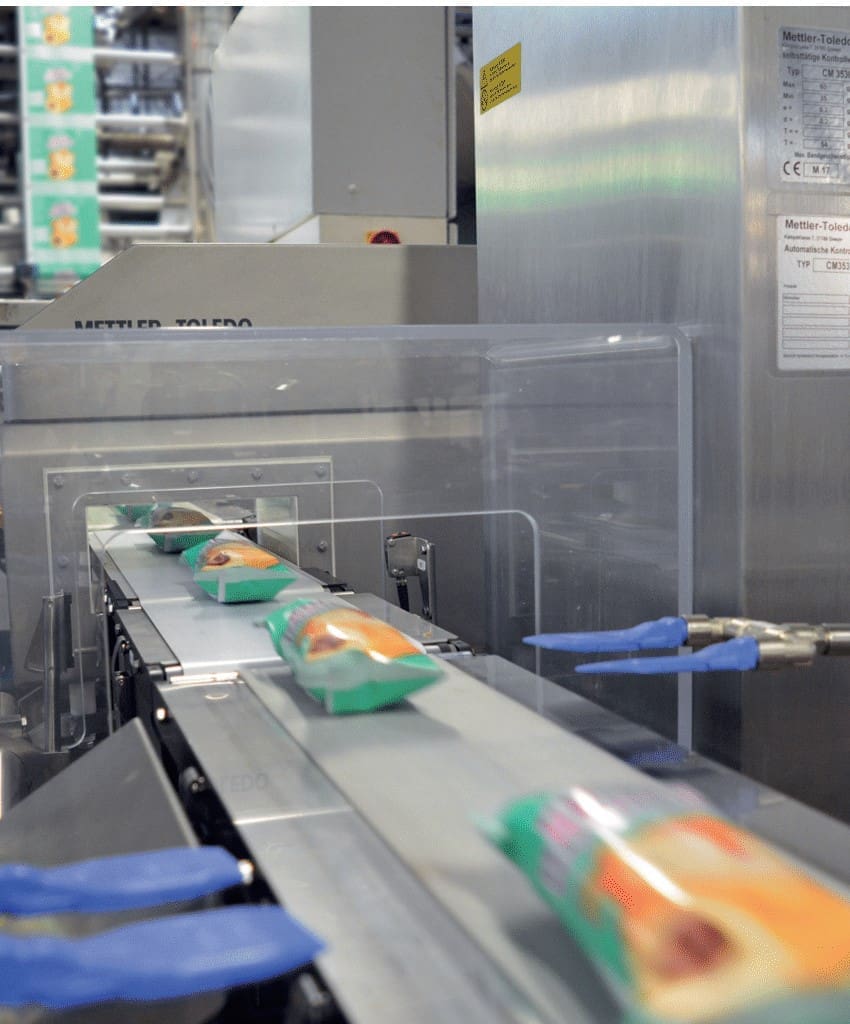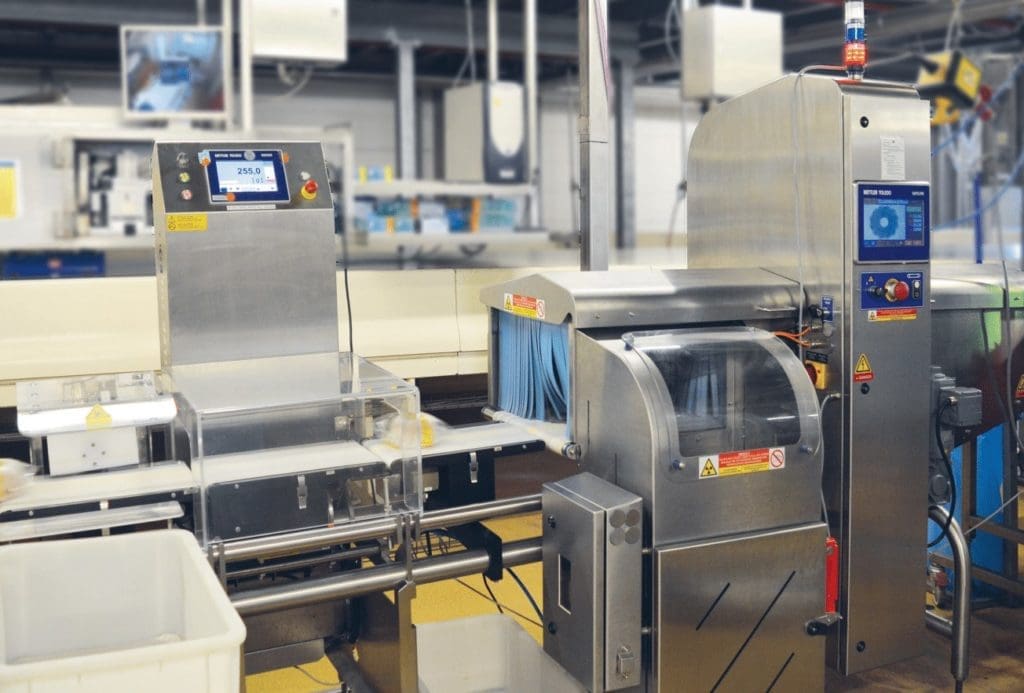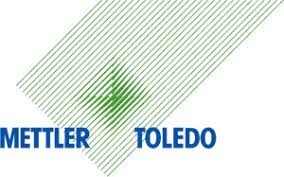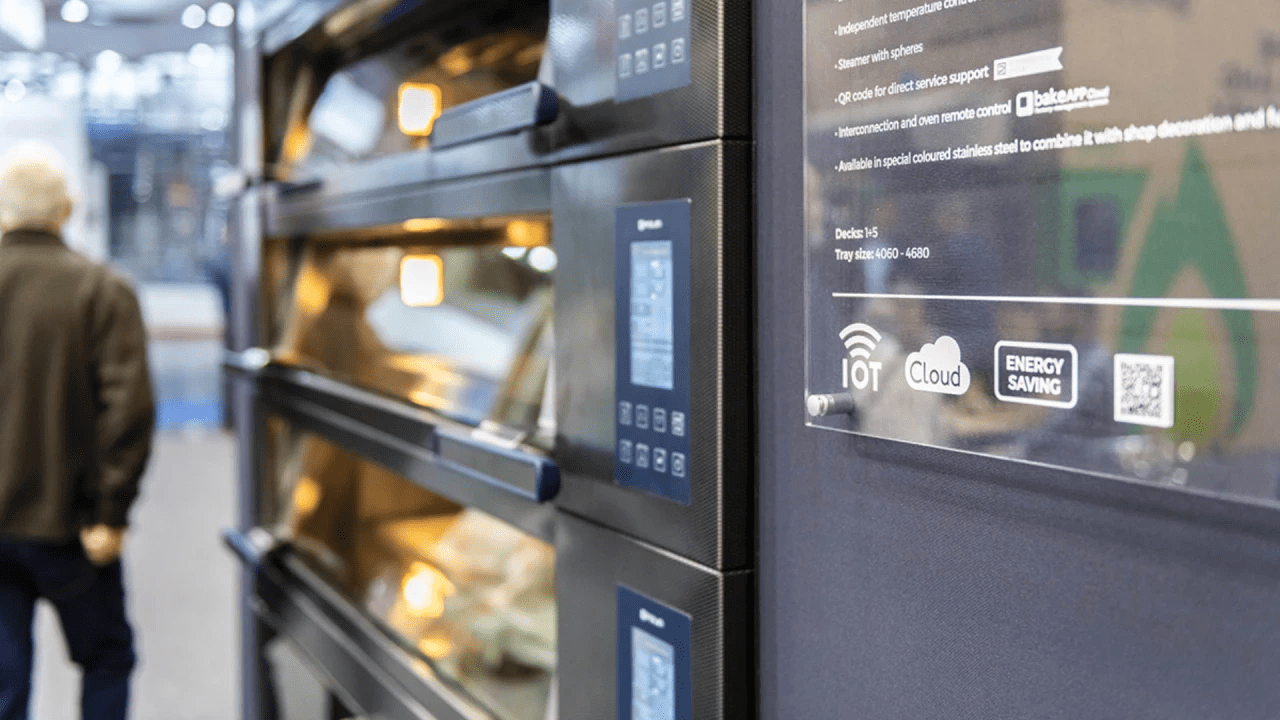Kuchenmeister GmbH has been producing delicious baked goods and confectionery specialities for over 130 years. The medium-sized, family-owned company with its headquarters in Soest is the market leader for ready-to-serve cakes in Germany as well as the international market leader for the German specialities, Baumkuchen and Christmas Stollen. For more than 20 years, the industrial bakery has relied on product inspection solutions from Mettler-Toledo.
‘Baking is our passion’ is the motto used by KUCHENMEISTER with its 1000 or so employees, who produce more than 90,000 tons of cakes a year, which are distributed worldwide both under the company’s own brand ‘Kuchenmeister’ as well as food retailer brands. The company, which is certified at IFS Higher Level, maintains ten production lines in three-shift operation at its main factory. Mettler-Toledo’s product inspection equipment is used for foreign body detection and product conformity along the entire production line, from incoming goods through processing to checking packaged products.
X-ray inspection for incoming goods

Kuchenmeister is committed to minimizing risks to consumer and product safety and, when in doubt, always errs on the side of caution. For example, the company sources pre-washed raisins for use in its Christmas Stollen, but subjects these to cleaning again prior to processing and then checks them for foreign bodies using x-ray inspection.
This is because, with natural products, there is sometimes a danger that foreign objects, such as small stones, can get into the crop during the harvesting process and cannot be completely removed with 100% certainty during the washing processes.
X-ray inspection is the method of choice here for reliably detecting foreign bodies such as stones, glass, rubber, metal and high-density plastics. “By checking incoming goods for foreign bodies, we simultaneously minimize the risk of small stones or metal parts causing damage to production machines and resulting in downtime further down the line,” explains Thomas Engel, Head of Quality Management at Kuchenmeister.
Feedback control ensures product quality
The ingredients inspected in goods-inwards are processed into various products such as stollen, croissants or pound cakes and baked. Dynamic checkweighers check whether the cake moulds are filled with the intended amount of batter. Thomas Engel explains, “The right amount of batter is not only an important factor in achieving the correct final weight. It is also a central quality parameter for ensuring the optimum level of cooking and browning.” Dynamic checkweighers therefore continuously optimize the filling process by means of fully automated feedback control.
If the checkweighers detect a tendency to overfill or underfill, they automatically trigger a reduction or increase in the volume of batter at the filling station. In this way it is possible to effectively avoid costly product waste caused by overfilling as well as ensure compliance with regulations by eliminating underfill.
Seamless final inspection
X-ray inspection systems and metal detectors at critical control points (CCPs) carry out checks for foreign objects before the baked goods are shipped. The individual product and its ingredients as well as the type of packaging determine which technologies are used. For homogeneous products such as pastry cases or croissants, the company relies on metal detection technology. This detects foreign bodies from ferrous metals such as chromium, non-ferrous metals such as brass and aluminum but also magnetic and non-magnetic stainless steel.
In the case of croissants, foreign bodies are detected by means of a free-fall metal detector integrated into the vertical packaging line. The freshly baked goods fall from above, through the metal detector, are checked and land directly in the sales packaging. Foreign bodies in products such as the traditional German ring cake, Gugelhupf, as well as most pound cakes, are detected using x-ray inspection systems. These have a horizontal conveyor belt and inspect up to 3000 units/hour. Contaminated products are removed from the production line by means of a pusher reject device.

“In order to best ensure product safety for our customers, we use x-ray inspection systems on the lines where the product or packaging variant requires it,” says Engel. Foil packaging containing aluminium has become significantly more important in baked goods in recent years. It is well suited to baked goods such as pound cakes, as hardly any moisture is able to escape. The cake does not dry out, is longer lasting and protected from aroma exchange in virtually airtight packaging.
For foreign body detection this presents new challenges: metal detectors are pushed to their limits when it comes to distinguishing metallic foreign bodies from the metal-containing packaging. Unlike x-ray inspection systems where packaging containing aluminium does not affect the accuracy of detection, these systems can look through the aluminium foil and detect foreign bodies with a higher density than the product.
Top priority: line availability
On seven of the ten production lines, there are no product changes. Failsafe operation and availability are top priorities for the company in ensuring it is able both to produce its own-branded products and deliver its food retailer branded products. Thomas Engel refers to the production of croissants as an example. “We bake about 33,000 croissants per hour. It is easy to see what damage can be caused by several hours of downtime on a production line. Not to mention possible penalties if we are unable to deliver our food retailer brands on time.
To put it bluntly, we cannot afford downtime of the production line due to a defective inspection device. That is why we have a Comprehensive Care Service Contract in place with Mettler Toledo. This not only covers the costs associated with labour and spare parts, but also includes regular maintenance and cleaning measures as well as functional tests including, in particular, the exact scheduling of maintenance measures. The service intervals agreed in the Comprehensive Care Service mean that the baked goods manufacturer is able to avoid maintenance-related production losses.
Thomas Engel explains, “If a seasonal product changes, for example our Christmas stollen, this means that the line must be customized and adapted to suit the new product. As the production line already has to be at a standstill for this to occur, we use this opportunity to have the necessary service and maintenance work carried out in accordance with the schedule.”
In addition to its own technicians and the Comprehensive Care Contract, Kuchenmeister also maintains its own spare parts warehouse, which ensures fast in-house repair times in the case of line failures. Toothed belts, drive and guide rollers as well as infeed and outfeed belts are stored at the Kuchenmeister site.
Operators, service and maintenance staff as well as quality managers are trained regularly by Mettler-Toledo to ensure they are able to optimally operate and maintain the equipment. In this way, Kuchenmeister has been able to increase its overall system effectiveness and simplify the provision of evidence as part of its auditing procedures.
Long-established single-source strategy
Kuchenmeister has been putting its trust in Mettler-Toledo’s production inspection technology for more than two decades. “Our philosophy is to rely on a single-source strategy,” says Thomas Engel. “We have one contact person for our product inspection technology and can coordinate everything – be it service and maintenance appointments or modernization measures – via that one contact person. Since we are completely satisfied with how this cooperation has worked until now, we see no reason to deviate from this philosophy. By the way, we apply this strategy to compressors, for example, and to other areas as well.”
Thomas Engel has been impressed by the longevity and reliability of the equipment: “The oldest Mettler-Toledo product inspection device that we use here, a dynamic GARVENS checkweigher, has been running for 20 years. However, our goal is not to achieve the record for age or endurance. So far, we have had no reason to replace the device at this station. Normally, we will replace and modernize our inventory of inspection equipment whenever it requires additional functionality or when an increase of the overall equipment effectiveness of the line is required,” says Engel.
Kuchenmeister always combines the installation of new inspection equipment with an introductory training for its operators by Mettler-Toledo. Twenty years of collaboration has given Kuchenmeister a comprehensive overview of the advances and developments in product inspection technology over the past two decades.
“Much has happened, not only in terms of detection accuracy. This is reflected, for example, in the higher energy yield of today’s x-ray generators, the increasingly optimized hygienic design and their compact construction, requiring less floor space or in the 5-year warranty that Mettler-Toledo gives on new x-ray generators,” summarizes Thomas Engel and provides an example: “We recently placed a new combination device, consisting of a dynamic checkweigher and a metal detector, in the packaging line for children’s croissants. With this, we combine foreign body detection and weight checking in one compact, space saving device.
Coupled with the easy-to-use touchscreen, the process security offering protecting us from operating errors, the quality of the documentation for inspection results and the ease of analyzing these, I believe we have found an optimal solution on this line with Mettler-Toledo, and I could even extend the list to include all the advancements which have come about over the past twenty years”.





